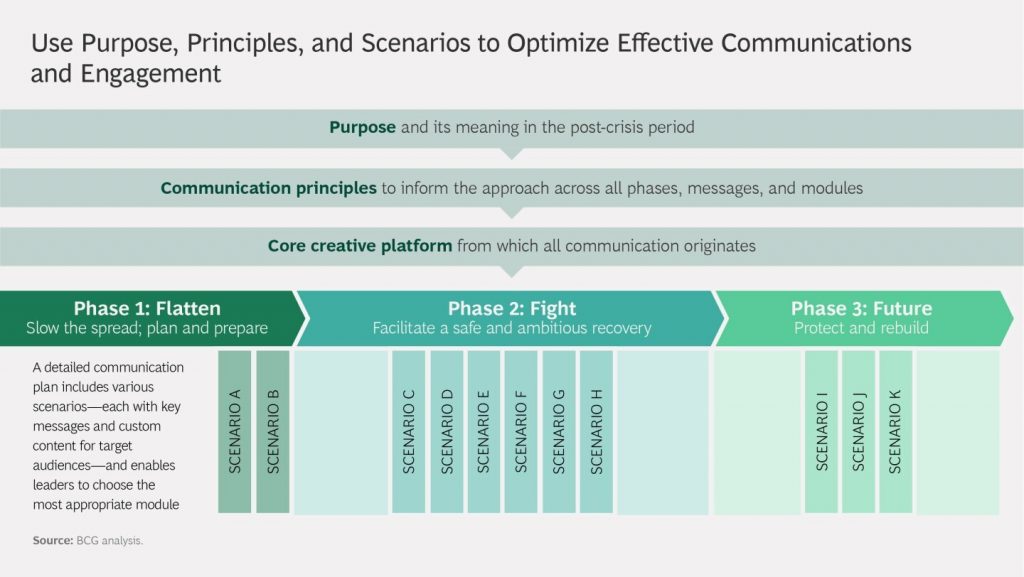The ongoing coronavirus pandemic has severely constrained economic and social activity in all countries, creating a defining challenge for corporate leaders as they make plans to restart their companies and value chains, reengage their workforce and stakeholders, and renew the confidence of customers and markets. Much hinges on leaders’ ability to function as active, authentic, and trusted communicators. Events will unfold quickly, and surprises will be inevitable. Missteps will be costly.
Consequently, as companies map their actions over the next months, the underlying communication plans must be agile and capable of dealing with uncertainty. Leaders need cohesive, scenario-based communication and engagement strategies designed to maintain flexibility and to maximize their companies’ credibility with stakeholders through the ups and downs of rebuilding.
We believe that the most effective strategies will focus on achieving several objectives (shown schematically in the accompanying exhibit):

- Consistently reinforce corporate purpose and its meaning in the post-crisis period, to offer a long-term perspective, inspire the organization, and create continuity in messaging, while retaining flexibility in how to get there.
- Anchor on communication principles that reflect core values, serve as guideposts for decision making, and establish a uniformly high standard for effectiveness and quality, to ensure that leaders consistently keep their big-picture objectives in mind.
- Employ a creative platform and approach to engage the hearts and minds of key stakeholders, moving people emotionally to drive explicit action that supports recovery, renewal, and change for the future.
- Prepare detailed communication plans against various scenarios, each with critical messages and custom content for key stakeholders and investors, including guidance on how to choose the most appropriate predeveloped module to deal with emerging circumstances.


